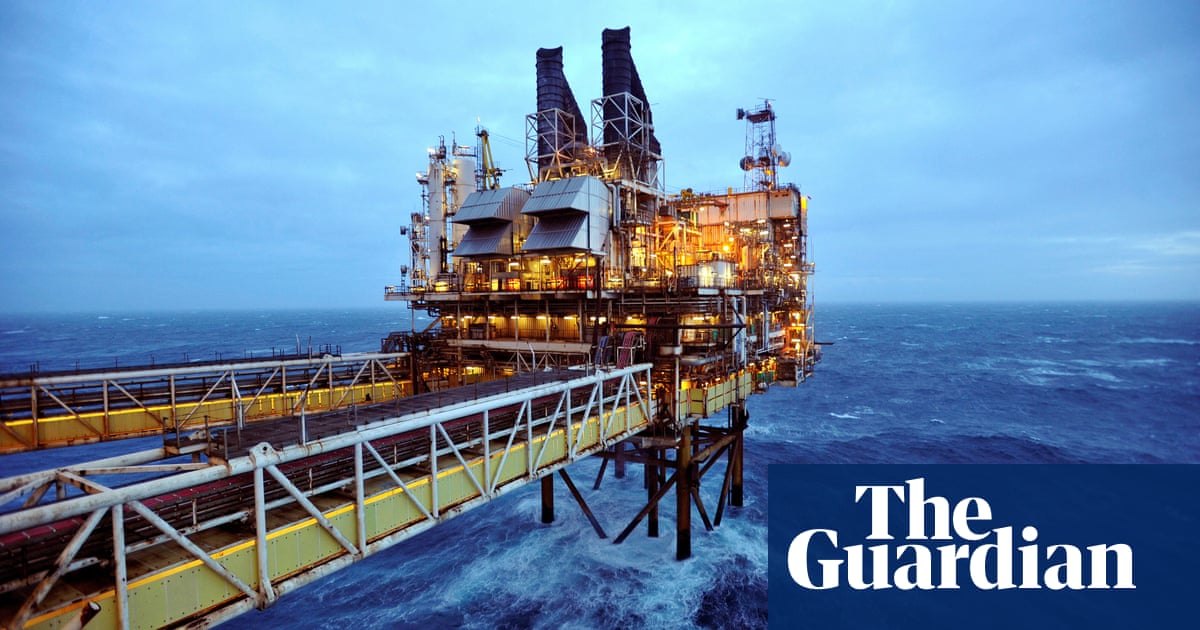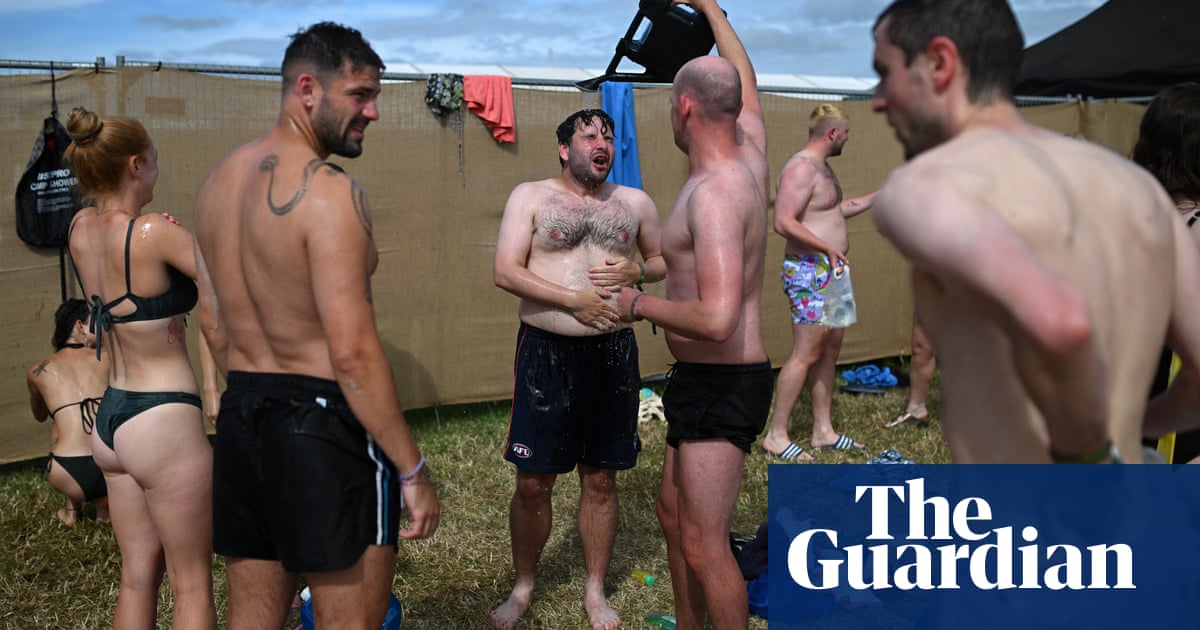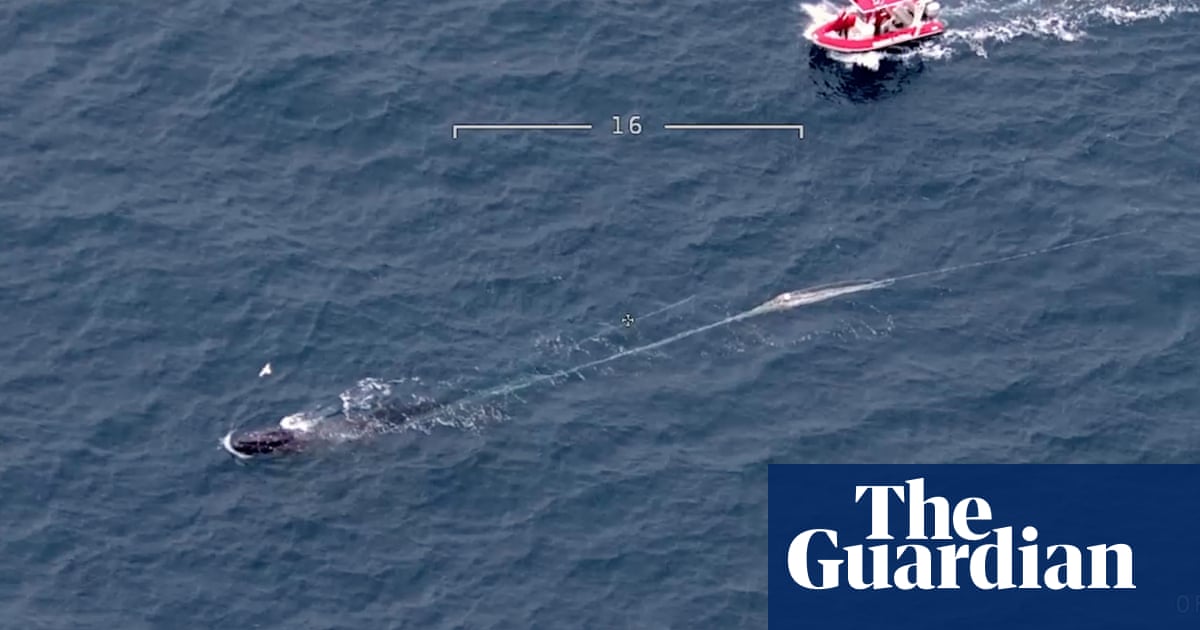âIn this city, everyone feels the decline of the North Sea,â says Chris Douglas, 39, who has lived in Aberdeen his whole life and began working as a taxi driver in the Granite City 20 years ago. He now has his own cab company, which in the past was entirely reliant on bookings from the oil and gas industry â today itâs âmaybe 50%â, he says.
âYou only have to look around: there are industrial estates decimated, hotels no longer trading. The good days are long gone,â he says. âAnd no political party is coming along to say they are going to rejuvenate the industry. There are just different plans for how to close it down.â
The oil and gasfields in the North Sea are in terminal decline. Last year, the oil basin produced 34m tonnes of oil, its lowest since production in the North Sea was established in the 1970s. As its accessible fossil fuels dwindle, big oil companies have pulled out of the ageing oil basin. And despite the government issuing a rush of licences since Russiaâs invasion of Ukraine, the amount of oil set to be extracted is rapidly shrinking.
Meanwhile, the climate crisis â fuelled by gas, oil and coal extraction â is accelerating at a frightening speed and the worldâs leading scientists and energy analysts are clear: there can be no new oil and gas projects if humanity is to avoid catastrophe.
In the far north-east of Scotland, this combination of factors could spell disaster for the almost 60,000 workers supported by the oil and gas industry, their families and communities. For the past four decades they have prospered on the well-paid, secure jobs North Sea oil has provided. But now they are looking into an abyss.
âMost of my friends went into the North Sea industry because for them, and for their fathers and their grandfathers, it has always been seen as a sure thing. Does the green economy offer that same security, the same pay?â Douglas says.
This is a crucial moment for these communities, according to Joe Rollin, a senior organiser at the union Unite, which represents tens of thousands of oil and gas workers. âWe simply canât let these workers be the coalminers of this generation, with all the devastation to lives and communities that would entail,â he says.
This is the challenge facing politicians in Westminster and Holyrood before this weekâs general election. How do they manage the inevitable and urgent decline of North Sea oil and gas â and can they ensure a just transition to new low-carbon jobs that are fully unionised, well-paid and secure?
For Mika Minio-Paluello, a policy officer at the Trades Union Congress (TUC), there is a lot on the line.
âWhatever happens to the people working in North Sea oil and gas, it is being closely watched by those in different industries and sectors â not just across the UK but also in other countries â to see if we can take working people on this journey.
âIt is a test case in some ways, for the whole idea of a just transition, of what happens when we decarbonise ⦠we simply canât have a repeat of what happened to coal workers in the 80s.â
The spectre of the minersâ plight after the pit closures in the 1980s hangs over this debate. The communities that were decimated when the then Conservative prime minister Margaret Thatcher closed the pits and smashed the coalminersâ union never recovered.
Arguably the stakes now are even higher. The escalating climate crisis demands a rapid end to fossil fuel production, but the populist right across Europe is on the rise and it has climate action in their sights â describing it as a remote, elite project being done at the expense of ordinary workers.
The UKâs main political parties are divided on the issue. The Conservative party is still promising to âmax outâ oil and gas in the North Sea by granting licences for new exploration every year. Meanwhile, Labour has promised to put an end to new licences, and raise taxes on the large profits being made by companies operating in the North Sea. The party is also promising ânot a single jobâ will be lost during the transition.
In response, the Scottish National party has U-turned on its pledge to phase out fossil fuel licences and is trying to tread a âmiddle groundâ, saying it will approve licences if they meet strict climate conditions â although most experts struggle to see how this could be possible.
Nigel Farage, the leader of the insurgent populist Reform UK party, is waiting to capitalise, vowing at his manifesto launch last month to axe net zero policies and fast-track licences to open up the North Sea.
âIf we fail to do this transition in a way that takes communities with us, then we leave the way open for Farage and the far right,â said Minio-Paluello. âThe risk of the far right culture wars building a wave of support on the back of our failure is very, very real.â
There is little doubt the writing is on the wall for the industry. Experts point out that the number of jobs supported directly and indirectly by oil and gas has more than halved in the past decade â from 441,000 to 214,00 â during which time the government has issued roughly 400 new licences in six licensing rounds.
According to the former head of the oil and gas regulator, new licences would make a difference to gas production only âaround the edgesâ. Even BPâs former chief executive has said North Sea drilling is ânot going to make any differenceâ to Britainâs energy security.
Ajay Parmar, a director at ICIS, a commodity data provider, says:âThe UKâs oil supply decline has been in the works for decades. Labourâs policy will hasten the decline but only marginally.â
Critics of the Tory pitch to âmax outâ North Sea oil claim it is part of a culture war framing what will only result in workers being stranded in a declining industry with no plan to save their livelihoods or communities.
Analysts and trade unions agree that unless it is managed properly, the transition will have a devastating impact on the Scottish economy. According to a report by the consultancy EY, which was commissioned by the Scottish government, North Sea workers have an annual average salary of £88,000, while those working in the oil and gas supply chain earn an average of £51,000 a year. This is well above the average annual salary of £29,000 in Scotland â and above the £42,600 average wage of employees in the clean energy sector, according to figures from the Energy and Climate Intelligence Unit.
As high wage oil jobs are replaced with clean energy roles, the gross value of Scotlandâs employment sector could plummet from £19bn a year in 2019 to £12bn by 2050, according to the report.
For people like Dale Green, who has been working on the rigs for the past 22 years, those statistics could be life-changing.
âWhen I was growing up, the only option for me really if I wanted a good job, good money, was to work on the rigs,â said the 39-year-old scaffolder. âIt has allowed me to move on from the council estate where I grew up and to be able to afford a decent life â to look after my children, get a house, get a car.â
Dale said he fears that unless the transition is properly managed the chances he has had will be denied to future generations.
âTaking away opportunities that someone like me has enjoyed, a scaffolder from a working-class community who grew up on a council estate â it could just decimate certain areas,â said Green.
If it wins the election, Labour plans to set up a taskforce with Scottish Labour, the big energy companies and the unions to âsecure a future for every oil and gas workerâ. It says the new jobs will mostly be in renewables, carbon capture and storage, and hydrogen.
after newsletter promotion
The shadow climate secretary, Ed Miliband, has promised to base Labourâs planned state-backed green power firm, Great British Energy, in Scotland. And part of Labourâs £7bn âwealth fundâ will be earmarked for wind power.
But the party has dropped its expertly costed £28bn-a-year green investment pledge, sparking concerns among unions and environmental campaigners about whether it had set aside sufficient funds to ensure a smooth transition away from fossil fuels.
Critics say Labourâs plans remain vague, that there is little or no industrial base in Scotland, and that there are currently very few renewable jobs to transfer workers to. They argue a well-funded, pro-active industrial strategy will be required to create the jobs in wind turbine manufacturing, installation and maintenance, as well as in the wider supply chain for renewables.
Unite says much more needs to be done. Its general secretary, Sharon Graham, refused to sign off the partyâs manifesto at its âclause Vâ last month â in part because of fears Labourâs plans for oil and gas workers in the North Sea were too vague.
âWe should not be letting go of one rope until we have hold of another,â said Graham earlier this year. âThese types of transitions must have workers at the heart. Unite will not stand by and let these workers be thrown on the scrap heap.â
The union is running a grassroots âNo ban without a planâ campaign across the north-east of Scotland calling for Labour to outline a more detailed and funded set of proposals before banning new licences. Last week, more than 200 small businesses published a letter backing the campaign and calling on Labour to spell out exactly where the jobs will come from.
Previously this position might have seen trade unions pitted against climate groups calling for a rapid winding down of the industry. However, behind the scenes there has been an unlikely alliance emerging. Last week, 60 leading climate organisations including Greenpeace UK, Friends of the Earth England, Wales and Northern Ireland, Oxfam UK and Extinction Rebellion signed an open letter calling for a âclear and fundedâ transition plan for workers and communities reliant on the oil and gas industry.
The letter, which was sent to all party leaders, is based on a report created in consultation with workers and backed by Unite, the National Union of Rail, Maritime and Transport Workers (RMT), the Public and Commercial Services Union (PCS), and Unison Scotland.
A spokesperson for Unite said it welcomed âsupport from the climate movementâ.
âWe are fully behind a transition to greener energy, but this must be a fair transition, one that has workers and communities at its heart ⦠we will continue to work with climate groups who are calling for ambitious government action on a just transition.â
Ruby Earle, from campaign group Platform, which helped coordinate the letter, said it shows âhow far the climate movement and unions have come in building relationshipsâ.
âGovernment support for a just transition cannot be an afterthought. A clear and funded industrial strategy, alongside publicly owned energy, is not only essential for workers, communities, and the millions of people living in fuel poverty, but also to ensure the transition happens within climate limits.â
Jake Molloy, a former oil and gas worker and trade unionist for the best part of 20 years, who now sits on the Scottish governmentâs Just Transition Commission, is at the sharp end of this emerging coalition.
âIf I had suggested, 20 years ago [to his colleagues in the industry] that they go and meet Greenpeace or another climate group, they would have thought I meant for a fight because these groups were seen as wanting to destroy our jobs, our communities.â
But he said that had changed in the last few years, with a huge amount of work going on behind the scenes. Molloy said this had resulted in more and more climate groups recognising that the necessary transition away from fossil fuels could not be done at the expense of ordinary working people. At the same time, some unions and workers have accepted that the transition was both necessary and â if done correctly â positive.
âMore and more people on both sides are realising that this is an industrial revolution on an unprecedented scale and that we need change â change so fundamental as to strip away the ideology that weâve worked in for the last 40 years.â
Molloy warned that the many of the much-heralded ânew jobsâ in renewables simply did not exist in Scotland â citing a recent windfarm development which has been built, installed and maintained entirely by overseas companies and governments.
Tessa Khan, director of campaign group Uplift, said the next government needed to âget everyone around the table â the Scottish government, trade unions, worker representatives and affected communities â to come up with a coherent plan that works in everyoneâs interests.â
Crucially, she said, the transition plans must be taken out of the hands of the oil and gas industry.
âThe majority of operators in the basin invest nothing in UK renewable energy, but nor are they investing in UK oil and gas production. The record profits of recent years have gone to their shareholders, not to investment in the transition. [They] arenât interested in creating clean jobs and growing the UK economy, but in making as much money as they can for themselves, for as long they can get away with it.â
Earlier this month the supreme court in London ruled the climate impact of burning oil and gas must be taken into account when deciding whether to approve projects. Experts say this is likely to be another nail in the coffin of North Sea oil and gas, making it it harder to secure new licences. It could even threaten some of those that have already been approved, including the controversial Rosebank oil and gas field, which is to be operated by Norwegian company Equinor. A Labour source said that if the party did form the next government, and Rosebank was still in the balance, then ministers could refuse the remaining consents it needed to operate.
Molloy, who has spent years working on a just transition for his colleagues in the industry, said that whatever the result in this weekâs election it was essential that politicians and corporations were not able to pit those worried about the climate crisis against those who wanted to ensure a decent future for workers, their families and communities.
âIâve got four grandsons who will never forgive me if I get this wrong, and Iâve been trying for considerable time to get it right, because their future â and that of millions around the world â relies on us getting this right.â





